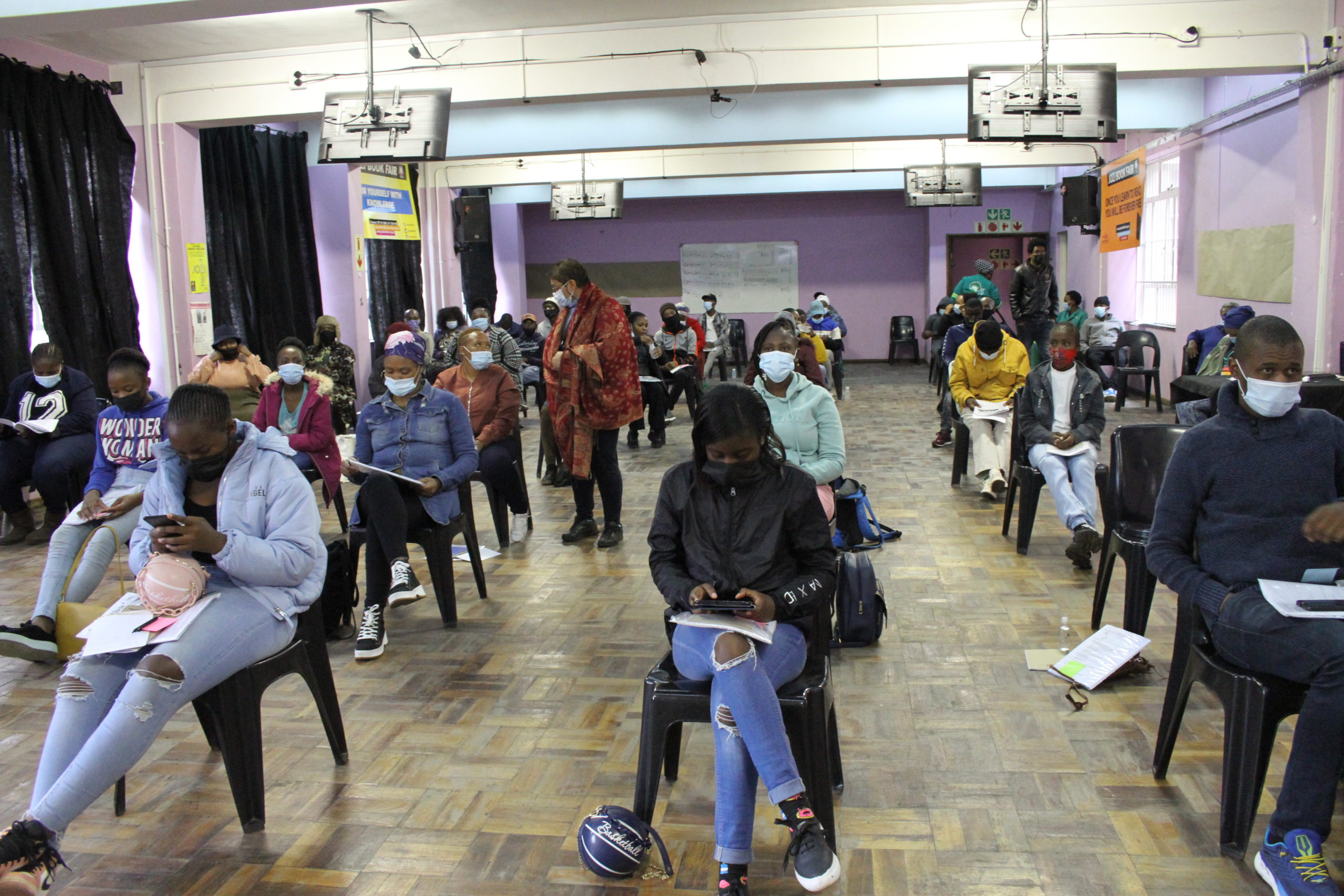In April 2022, Khanya College hosted its first workshop session of it’s Political Education Programme for the year. The focus of the session was on understanding what is Popular education. Popular education is a people-oriented and people-guided approach towards education that was theorised by Paulo Freire. Freire was an educator and one of the most influential philosophers of education who’s work has been instrumental in liberation movements all over the world.
Various Freirian methods of self-education are used throughout Khanya’s political education programme to promote popular education amongst the working class constituents that Khanya works with. One of these key methods in political education is the idea and methodology that all participants’ can contribute to the ‘teaching’ and learning process through sharing, analysing and debating of different participant’s experiences as everyone can learn through discussion and interaction.
Asked why Khanya College has started the Political Education Programme with all activists it works with, the director of Khanya College, Dr Maria Van Driel said; “We as Khanya use political education so that the working class are able to fight for themselves as the society in which we live is a society structured for capitalists”.
“What we want to look at is how we teach the working class to educate themselves, each other collectively, and also how they can organise so that they can fight the forces against them,” said Dr Van Driel, who has worked with Khanya towards empowering the working class with political education since 1994.
As part of the programme participants are given readings and other resources on political education, and also on understanding the society in which we live. This is because Khanya sees as essential the need to improve the reading and writing capacities of the working class while at the same time broadening their understanding of the world.
“Colour and race, class and capitalism, the impact of neoliberalism, patriarchy, and feminism will be some of the content read and discussed in the programme”, said organiser of the programme, Nosipho Mdletshe.
According to Mdletshe; the main format of the programme is study groups, where different community organisations, precarious workers, youth and women activists participate in these study groups and come together to discuss a couple of themed readings each month. The groups will meet on a weekly-to-fortnightly basis via Whatsapp and on a monthly basis will physically come together in a plenary session held at the House of Movements.
Khanya College as an organisation hopes to achieve broad participation and a good number of participants who will walk away more educated and well informed on political education as a methodology for their organisations and communities to use.
Khanya also shares the hope that the participants commit to attending the different sessions regularly, and also that they read the necessary materials each week and participate in the discussions to share their progress, understanding, experiences and challenges with process.
The staff organisers and participants of the programme also share an excitement for the programme and the fruits that can be received from it. Some have set goals for the growth in the programme.
Lerato Tala, an Information and Communications Technology (ICT) intern at Khanya and also part of the organising task team for the programme said; “So far, the programme has made a great impact in terms of gaining more people who are interested in participating in the programme. With the Anti-Xenophobia Workshop that occurred [at the HoM, hosted by the Covid-19 Working Class Campaign], there were study groups [used as a methodology] and people showed interest about finding out what popular education is and in understanding it in their own ways in terms of what is going on in their daily lives.”
“I also think popular education is a great term or strategy that is used to engage people in different unique ways of learning. Rather than the traditional way of having a teacher or leader teaching people according to the book, the facilitators focus on letting the participants engage in the discussion or session and hear their views.”
Tala has also set a few goals for herself through the programme: “As an organiser, I want to achieve positive engagement from the participants that will make the programme to be a success, where everyone is involved and showing interest in the programme. But as a participant I would like to achieve more knowledge about popular education and how it is being used in terms of politics.”
This article was submitted on 11 May 2022. You may republish this article, so long as you credit the authors and Karibu! Online (www.Karibu.org.za), and do not change the text. Please include a link back to the original article.


 Download PDF
Download PDF
